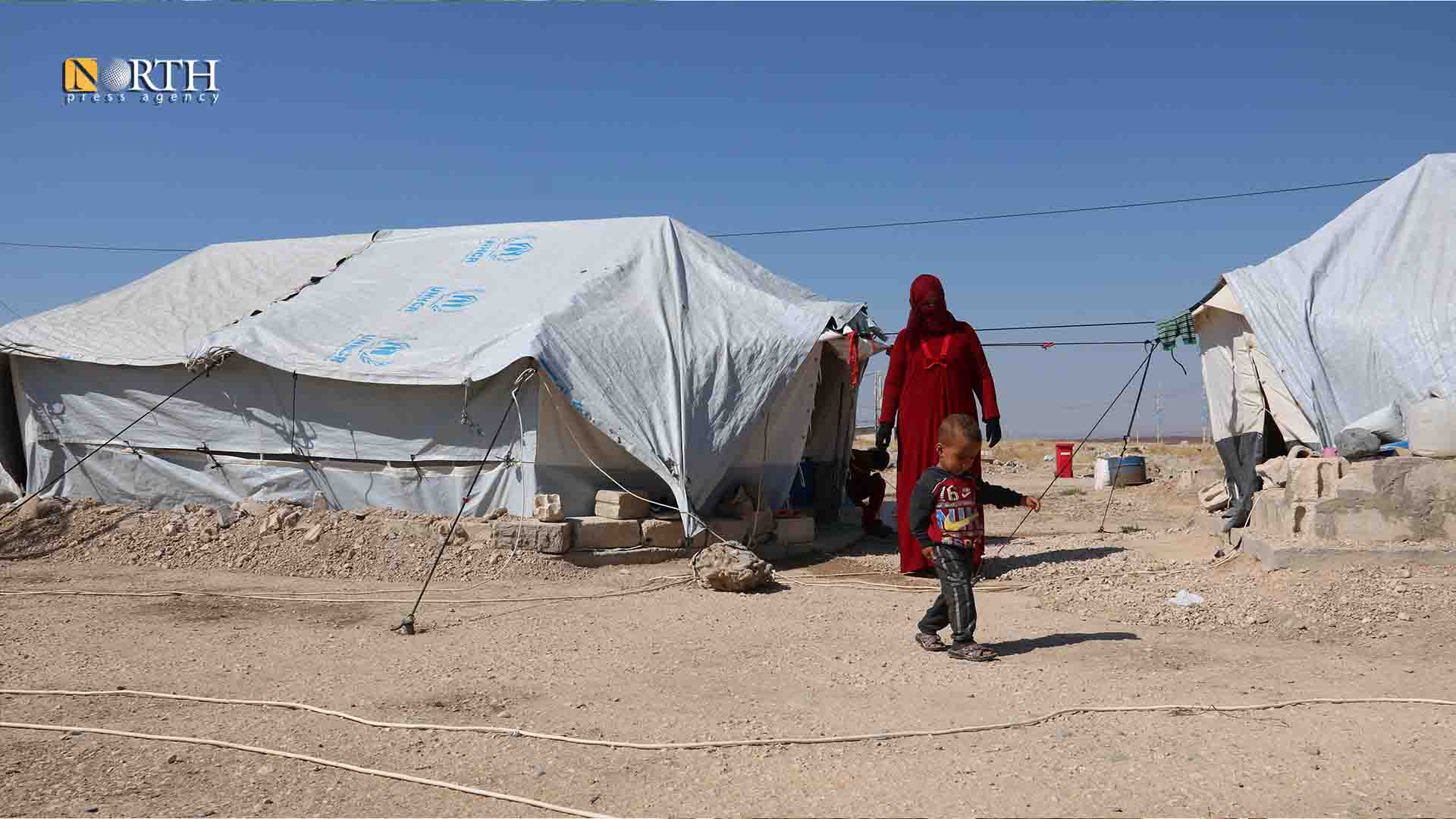DERIK, Syria (North Press) – Avin Mustafa, an IDP from the city of Serekaniye (Ras al-Ain), northeastern Syria, remembers the details of the day she lost everything. It was four o’clock in the afternoon on Wednesday, October 9, when Turkish planes flew over the sky of Sere Kaniye.
“At first we thought they were Global Coalition reconnaissance aircraft,” she recalls.
Turkish Armed Forces and Turkish-backed armed opposition groups took control of the cities of Sere Kaniye and Tel Abyad and their surrounding countrysides in October of 2019. Since this time, residents in the region have reported many human rights abuses, including theft, looting, assault, kidnapping and murder.
300 thousands IDPs
Mustafa, who now lives in Newroz camp in the Derik countryside, told North Press, “These planes started bombing streets, homes and schools. Children and women were screaming, and smoke was rising from everywhere as if it was doomsday.”
She could not prevent herself from crying as she remembered the sound of planes and the fall of shells on her city. “What is the fault of our children, who are afraid of any plane flying, wondering if it will bomb them or not?”
With the start of the air strikes, people of Sere Kaniye and Gire Spi began to flee. More than 300,000 people were displaced, according to the statistics of the Autonomous Administration in North and East Syria.
About of 88 Sere Kaniye’s displaced families live in Newroz camp, while other families from Sere Kaniye and Gire Spi are distributed among the camps of Tal Samen in the countryside of Raqqa and Washokani, Sere Kaniye, and Arisha in Hasakah.
These are in addition to those who remained in shelters in the city of Hasakah, while others live in rented houses in the cities and towns of north and east Syria.
The report of the United Nations International Commission of Inquiry on Syria, issued in August, documented war crimes committed by Turkish-backed armed opposition groups in the Kurdish regions of northern Syria.
I miss my house
Mayada al-Salamah, who was displaced from the town of Manajir in the south countryside of Sere Kaniye, was forced to leave her hometown. “A week after the terrorists entered Ras al-Ain, my daughters and I walked for three days until we reached a school in Tel Tamr,” she explains.
Al-Salamah stayed in the school, which acted as a makeshift shelter for IDPs, for two months before moving to Newroz camp.
Most of the displaced people in these schools faced difficult conditions, and suffered a lot in the shelter. “Winter came and we did not have any heaters or diesel fuel.”
“I hope that the terrorists leave my city so I could go back to my house. I hope that I can sleep in my house, even if I slept under a tree. Sitting under my olive tree there, is worth the whole camp,” al-Salamah added.
“I miss my home, I miss everything, I miss sitting under our trees.”
Destruction and looting
Since the Turkish invation, residents in the region have reported many human rights abuses, including theft, looting, assault, kidnapping ,and murder, according to international human rights organizations’ reports.
Zahra Khalil, (pseudonym) an IDP from Manajir town, sat in front of her tent recalling her house. “My house was big, we grew olive trees and flowers in its yard.”
Footage spread on social media during the Turkish invasion, showed phrases written on the walls of houses, claiming the seized property for certain Turkish-backed armed groups.
Khalil said, “They stole everything – the doors, windows, and fuse boxes, nothing left except the walls.”
She adds that she couldn’t return unless under international protection.

